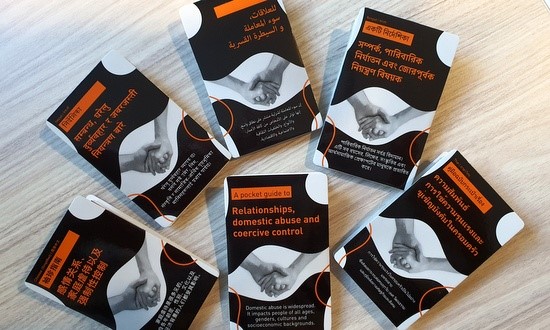Advance Diversity Services has played a pivotal role in producing six easy-to-read, pocket-sized brochures about coercive control.
The brochures were released in May to coincide with Domestic and Family Violence Prevention Month.
ADS Team Leader, Emerging Communities, Settlement and Community Services, Magdaline Shenton-Kaleido, is a member of the St George Domestic Violence (DV) Committee and served on the committee’s sub-working group to develop the brochures.
She said, “Coercive control is an overwhelmingly common experience in abusive relationships and has been found to be a significant factor in most deaths resulting from domestic violence.
“Yet most people in the community don’t know about coercive control or don’t understand how it might manifest.
“The St George DV Committee wanted to help people to understand how you can still be in an unhealthy or abusive relationship even where there is no physical violence. And that’s why we produced the brochures – in English and five community languages: Simplified Chinese, Arabic, Nepali, Thai and Bengali.”
Ms Shenton-Kaleido said ADS’s bicultural officers proofread and amended translations from the English version of the brochure before printing, which was a tremendous help with the project.
The brochures provide information about support services available in the St George region and a healthy relationship checklist. The checklist asks if there is someone in your life who:
- Makes you feel afraid?
- Controls what you do and say?
- Puts you down or embarrasses you?
- Accuses you of flirting and cheating?
- Pressures or forces you to do sexual things?
- Threatens to hurt you, themselves, friends and family?
- Constantly checks your phone?
- Limits your access to money?
“Any of these actions may be signs of coercive control or abuse,” Ms Shenton-Kaleido said.
“Coercive control is an abusive behaviour used to cause fear and/or control a person or situation.
“This type of domestic violence is known as domestic abuse and can go undetected in intimate partner relationships for years.”
If not recognised, controlling behaviours like gaslighting, stalking and technological abuse can escalate to physical, life-threatening violence, Ms Shenton-Kaleido said, so people should seek advice and support even if they were unsure that is what they were experiencing.
“Our aim in launching A Pocket Guide to Relationships, Domestic Abuse and Coercive Control is to help people find the support they need before the violence escalates and to show that support is available in the community to help them build healthier relationships.”
Download the free coercive control brochures from the ADS website.

